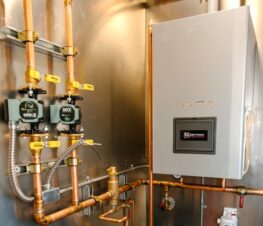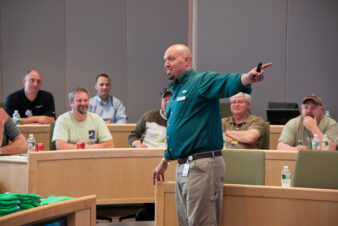Atlanta — A move by United States engineering and surveying licensing boards to remove a requirement for an additional 30 credit hours for obtaining licensure as a Professional Engineer is met with approval by ASHRAE.
In 2006, the National Council of Examiners for Engineering and Surveying (NCEES) approved language in its model law requiring the additional 30 hours – roughly the equivalent of a master’s degree – to obtain a P.E. license. The requirement was slated to take effect in 2020.
At its 2014 annual meeting held Aug. 20-23, NCEES voted to modify that approach, and instead develop an official NCEES position statement that supports additional engineering education beyond a bachelor’s degree.
The move was applauded by ASHRAE and other industry associations who had opposed the effort over the last eight years.
“ASHRAE supports this move by the NCEES,” ASHRAE President Tom Phoenix, P.E., Fellow ASHRAE, BEMP, BEAP, said. “We saw this as a hurdle to becoming an engineer when engineers are already in short supply. We felt that committing an additional year to obtain 30 credit hours would be a very significant deterrent for many engineers who might otherwise pursue an engineering degree. The current system of examinations and supervision in practice are workable, effective and adaptable resulting in highly competent professional engineers.”
Under the change from NCEES, beginning in 2020, the group’s model law and model rules will continue to require an engineering bachelor’s degree from an EAC/ABET-accredited program to fulfill the education requirement for engineering licensure.
“ASHRAE will continue to develop educational programs that ensure its members remain at the forefront of engineering practice and technologies,” Phoenix said.
ASHRAE, founded in 1894, is a global society advancing human well-being through sustainable technology for the built environment. The Society and its more than 50,000 members worldwide focus on building systems, energy efficiency, indoor air quality, refrigeration and sustainability. Through research, standards writing, publishing, certification and continuing education, ASHRAE shapes tomorrow’s built environment today.
More information can be found at www.ashrae.org/news.




Join the conversation: